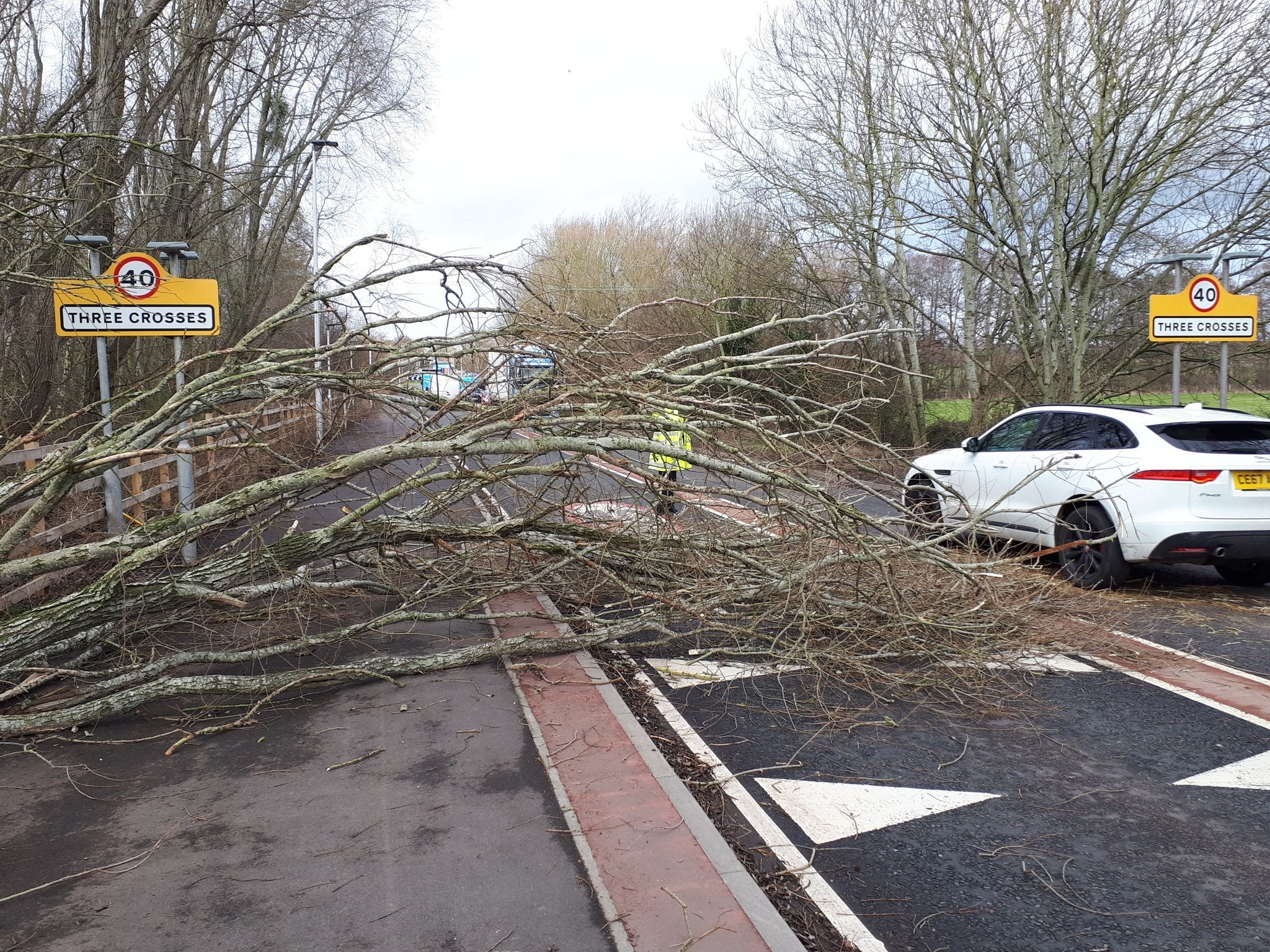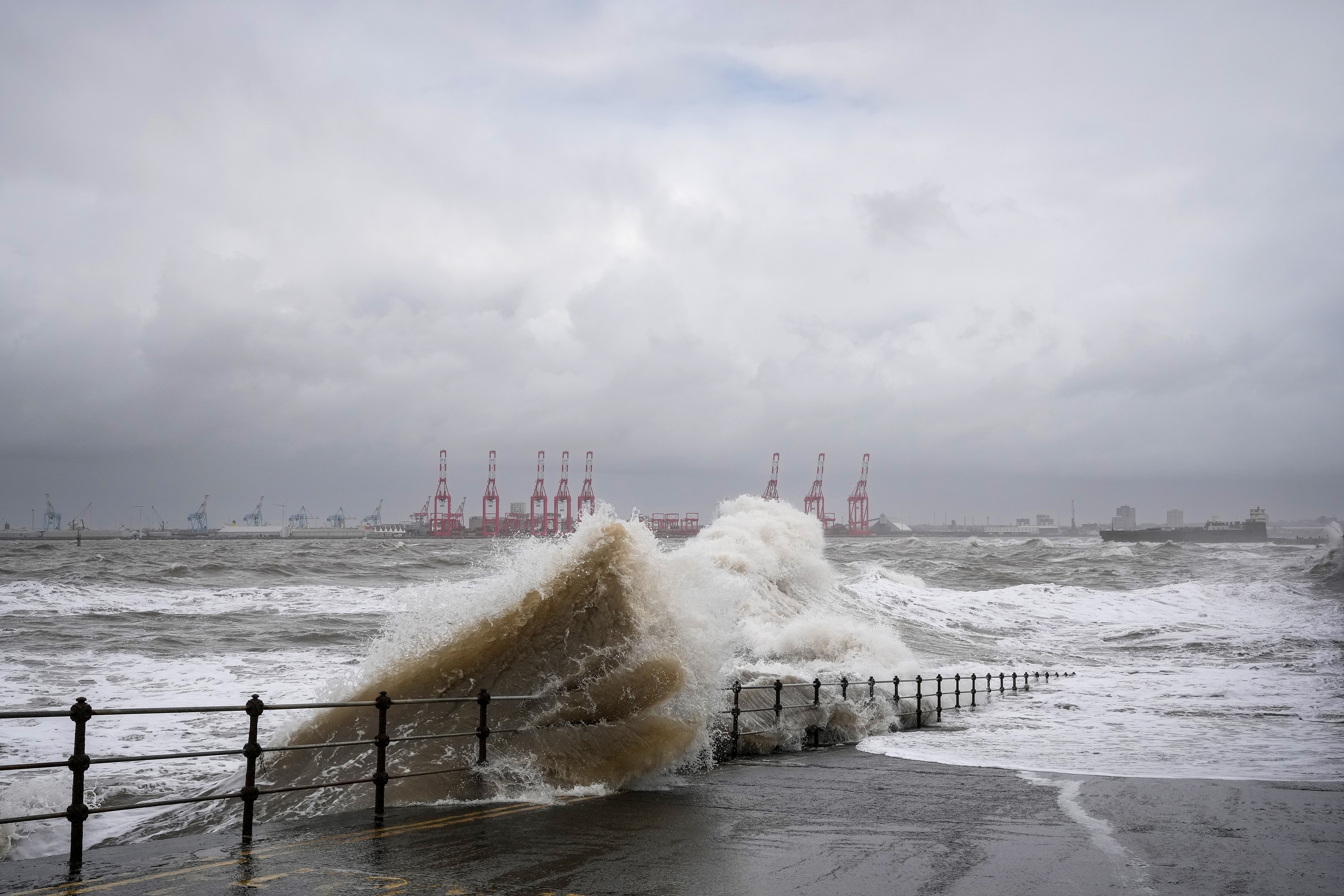Storm Eunice ‘could tear up millions of trees’
British forests are still reeling from Storm Arwen, which felled an estimated 8m trees

Your support helps us to tell the story
From reproductive rights to climate change to Big Tech, The Independent is on the ground when the story is developing. Whether it's investigating the financials of Elon Musk's pro-Trump PAC or producing our latest documentary, 'The A Word', which shines a light on the American women fighting for reproductive rights, we know how important it is to parse out the facts from the messaging.
At such a critical moment in US history, we need reporters on the ground. Your donation allows us to keep sending journalists to speak to both sides of the story.
The Independent is trusted by Americans across the entire political spectrum. And unlike many other quality news outlets, we choose not to lock Americans out of our reporting and analysis with paywalls. We believe quality journalism should be available to everyone, paid for by those who can afford it.
Your support makes all the difference.Forestry officials are braced for the widespread destruction of trees as Storm Eunice sweeps the UK.
Storm Arwen uprooted an estimated 8m trees in November and Eunice, which is expected to be one of the UK’s worst storms in decades, could take a greater toll.
Joe Middleton, a Woodland Trust site manager based in the South West, where the Met Office has issued a rare red warning, urged people not to enter woodlands during high wind and storms.
He said: “The impact is unpredictable but more recently we have seen unprecedented storms that are causing hundreds of trees to disappear in a wood, rather than individual trees.
“In terms of scale in relation to Storm Arwen, it may be similar but in the south we don’t tend to be affected to the same degree as the north and Scotland, so this is unusual.
“After the storms our first job will be to check the sites to assess damage. Given the scale of our estate we also have a network of trained volunteers to help us in this task to ensure we can act rapidly to address any problems.”
Mr Middleton said woods were “facing growing and unprecedented threats”.
He told The Independent: “It certainly appears storms are on the increase and at unexpected times of year – we’re suddenly seeing climate change on our doorsteps.
“Our woods are facing growing and unprecedented threats due to climate change and pests and diseases. Trees are being lost on a greater scale.
“Many trees are weaker as a result of diseases such as ash dieback, making them more susceptible to storms such as this. There’s certainly lots more sleepless nights now for woodland managers. “
The most serious red weather warning is in place for the coastline of Devon, Cornwall and Somerset as well as the south coast of Wales, while Wales and much of England is under an amber warning.
A yellow weather warning is in also place for the North of England, Scotland and Northern Ireland.
Doug Howieson, the head of operational delivery for Scottish Forestry, said the number of storms this winter was "unprecedented".

He told the BBC: "It is critical that we plant in the right place and in the right time now, to shape our future forest’s resilience to climate change."
The Met Office has warned of flying debris resulting in danger to life, damage to buildings and homes, with roofs blown off and power lines brought down, roads, bridges and railway lines closed, power cuts, and flooding of some coastal properties.
Rail passengers have been advised that disruption is likely into the weekend as tracks are checked and cleared of debris and fallen trees.
Met Office chief meteorologist Frank Saunders said: "After the impacts from Storm Dudley for many on Wednesday, Storm Eunice will bring damaging gusts in what could be one of the most impactful storms to affect southern and central parts of the UK for a few years.
"The red warning area indicates a significant danger to life as extremely strong winds provide the potential for damage to structures and flying debris.
"Although the most exposed coastal areas in the south and west could see gusts in excess of 90mph, winds will remain notably strong further inland, with gusts of between 70-80mph for most within the amber warning area."
Around eight million trees in Scotland were damaged or affected by Storm Arwen, forestry chiefs estimate.
The storm on 26 November, which affected at least 4,000 hectares of woodland in Scotland, caused three deaths as winds reached nearly 100mph and heavy snow hit the UK.
Environment minister Mairi McAllan said: "Storm Arwen provided a salutary lesson of the power of nature and the challenge of climate change. Our people suffered and so too did our natural environment.
"The impact is evident in the distressing images of flattened forests and woodlands which will take decades, if not centuries, to recover from. Their loss reminds us of the significant role trees play in our lives, communities, economy and wellbeing.”
Join our commenting forum
Join thought-provoking conversations, follow other Independent readers and see their replies
Comments